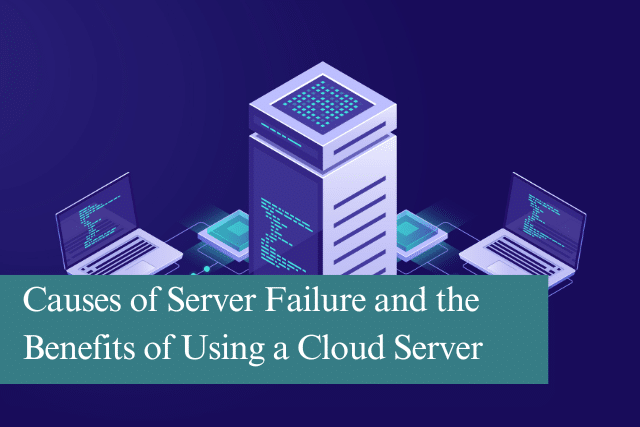
From websites to internal communication systems, a functioning server ensures smooth, uninterrupted access to critical data and services. However, when a server fails, it can cause massive disruptions, lost productivity and financial setbacks. Understanding what causes server failures and how cloud servers can help mitigate these risks is vital for any modern business.
Common Causes of Server Failure
Hardware Malfunctions
Traditional on-premises servers rely heavily on physical components such as hard drives, power supplies and cooling systems. These components are prone to wear and tear, overheating, and eventual failure, especially if not regularly maintained.
Power Outages
Power interruptions, whether from local grid issues or internal failures, can bring down an entire server. Even a short outage can corrupt data or interrupt critical processes.
Overheating
Without proper climate control, servers can overheat. Excessive heat leads to performance issues and can damage internal components over time, leading to unexpected shutdowns.
Human Error
Misconfigurations, accidental deletion of important files, or improper maintenance can all lead to server failure. Human error remains one of the most common and costly causes of downtime.
Cyber Attacks
Malicious attacks such as ransomware and hacking attempts can overwhelm or shut down servers. These incidents not only cause downtime but can also result in data breaches and reputational damage.
Software Failures
Outdated software, unpatched vulnerabilities, and compatibility issues can lead to server crashes. Regular updates and monitoring are essential to keep systems running smoothly.
The Benefits of Using a Cloud Server
As businesses move towards digital transformation, cloud servers are becoming the go-to solution for those looking to enhance reliability, security, and scalability.
Enhanced Reliability
Cloud providers use advanced infrastructure with built-in redundancy. This means if one server fails, another instantly takes its place significantly reducing downtime.
Scalability on Demand
Cloud servers allow you to scale resources up or down based on current needs. This flexibility ensures optimal performance during peak usage periods and cost-efficiency when demand is low.
Improved Security
Top-tier cloud providers invest heavily in security measures including firewalls, intrusion detection systems, and regular updates. They also ensure compliance with data protection regulations.
Cost-Effectiveness
With cloud servers, there’s no need for large capital investments in hardware. You pay for what you use, and maintenance costs are often included in the service.
Remote Accessibility
Employees can access cloud-based systems from anywhere, fostering remote work and business continuity even during emergencies.
Automated Backups and Disaster Recovery
Cloud servers often come with automatic backup solutions and disaster recovery options, ensuring your data is safe and quickly recoverable in the event of a failure.
Protect Your Business Today
Server failure isn’t just an inconvenience it’s a potential business disaster. Whether you’re still relying on traditional servers or considering a move to the cloud, having the right support in place is crucial.
Get in touch with our professional IT support team today to explore tailored solutions that ensure your systems stay secure, efficient, and future-ready.
Contact us now for a free consultation!
Recommended Posts

How to Get the Most Out of Your IT Budget
25th April 2025

10 Biggest Cybersecurity Mistakes of Small Companies
18th April 2025

The Importance of Planning in Business IT Solutions
11th April 2025
